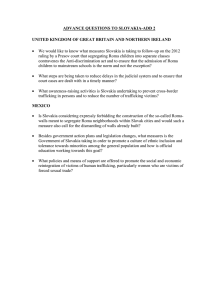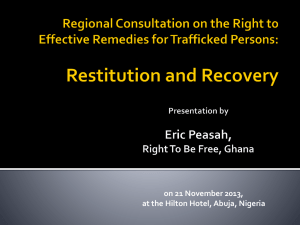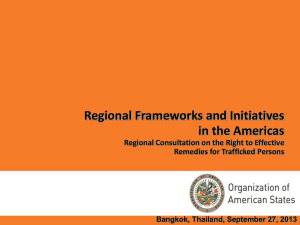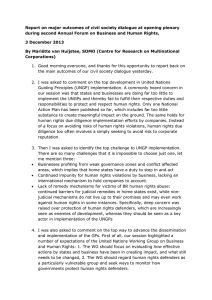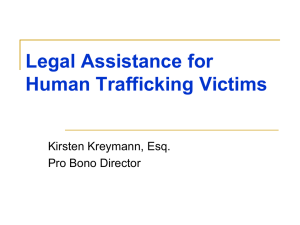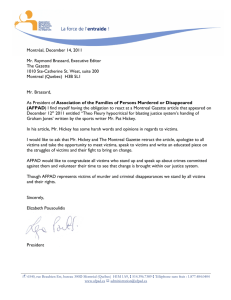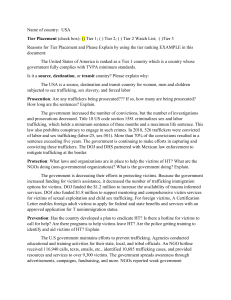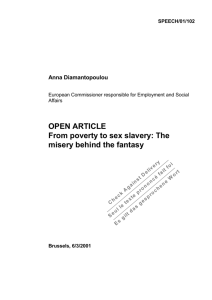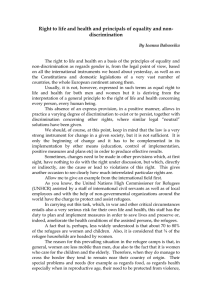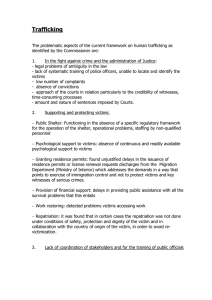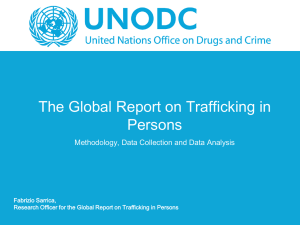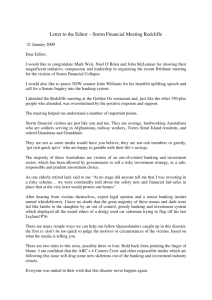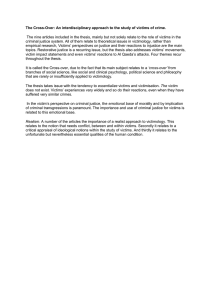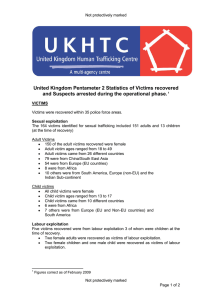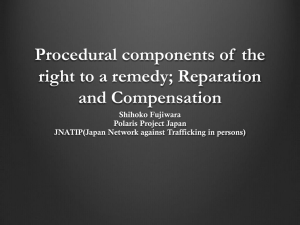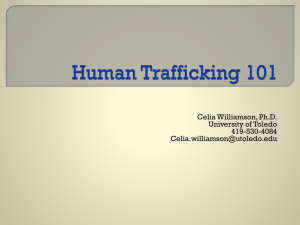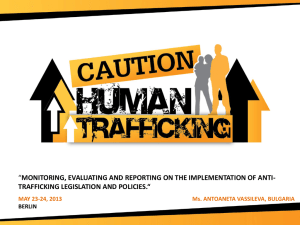Wade McIntyre Op-Ed 1 11/4/15 Soci 6900 In Women and the
advertisement
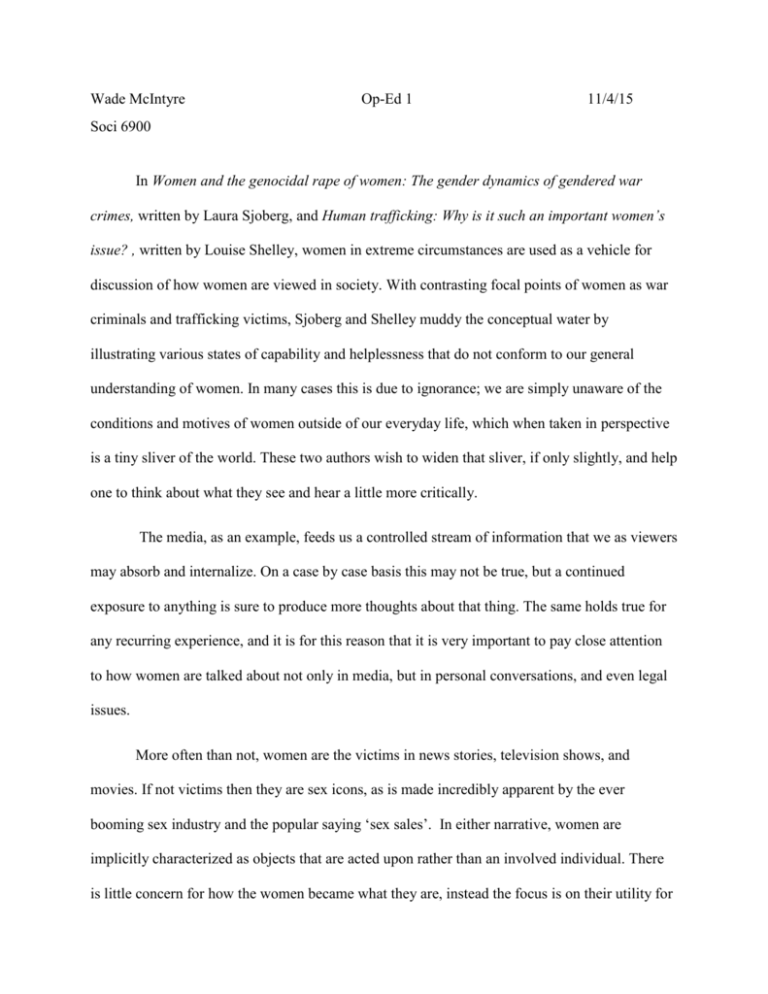
Wade McIntyre Op-Ed 1 11/4/15 Soci 6900 In Women and the genocidal rape of women: The gender dynamics of gendered war crimes, written by Laura Sjoberg, and Human trafficking: Why is it such an important women’s issue? , written by Louise Shelley, women in extreme circumstances are used as a vehicle for discussion of how women are viewed in society. With contrasting focal points of women as war criminals and trafficking victims, Sjoberg and Shelley muddy the conceptual water by illustrating various states of capability and helplessness that do not conform to our general understanding of women. In many cases this is due to ignorance; we are simply unaware of the conditions and motives of women outside of our everyday life, which when taken in perspective is a tiny sliver of the world. These two authors wish to widen that sliver, if only slightly, and help one to think about what they see and hear a little more critically. The media, as an example, feeds us a controlled stream of information that we as viewers may absorb and internalize. On a case by case basis this may not be true, but a continued exposure to anything is sure to produce more thoughts about that thing. The same holds true for any recurring experience, and it is for this reason that it is very important to pay close attention to how women are talked about not only in media, but in personal conversations, and even legal issues. More often than not, women are the victims in news stories, television shows, and movies. If not victims then they are sex icons, as is made incredibly apparent by the ever booming sex industry and the popular saying ‘sex sales’. In either narrative, women are implicitly characterized as objects that are acted upon rather than an involved individual. There is little concern for how the women became what they are, instead the focus is on their utility for characterizing an assailant or erotic arousal. T.V. crime dramas like C.S.I and Law and Order have dedicated episode after episode to the dramatization of criminal activities. By creating elaborate back stories and motives, these shows place greater emphasis on the criminal while using their victims as mere props to further flesh out their characters. These shows may rile us against the assailant, but they also devalue the victim by placing no importance in their characters. The same is true in movies, in which females commonly play supporting roles to men. It doesn’t matter whether he is the hero or the villain, his character is contextualized and driven by and at the expense of the woman. There is no story, no background, and little if any dialogue for her, she is just an object used to add to and move the plot. Of course not all women in media fit this generalization, but that amount would be laughable if it wasn’t so disappointing. There are so few women of power and respect in our reservoir of knowledge and experience that they are considered outliers; so much so that they are sensationalized as gender deviant creatures. Women’s actions are too often assumed to be a consequence of their sex, a disrespectful oversimplification that men are not as subject to. Either as an overabundance or lack thereof, femininity is perceived as the active force determining female choice and aim. Rather than look at the unique circumstance of the individual as would be done for a male, we continue to ignore these criteria when evaluating women. This is an unhealthy practice that skews the idea of what a woman is, and cheapens female experiences which would otherwise help to illuminate the intricacies of society and the uncountable relations within it. Unfortunately we, as a whole, are more concerned with how a woman looks and carries herself than we are about what she has done and the experiences she has.
